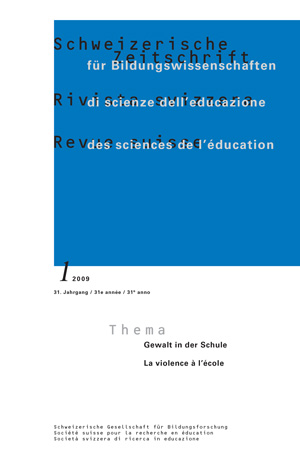Child and family characteristics as risk factors for peer victimization in kindergarten
DOI:
https://doi.org/10.24452/sjer.36.1.4806Keywords:
Peer victimization, emotional/behavioural difficulties, verbal ability, parental educational level, immigration background, family relationships, kindergartenAbstract
The current study investigates whether children’s difficulties (symptoms, verbal ability) mediate the impact of family variables (emotional family environment, parental education level and foreign citizenship) on peer victimization. Teachers and parents completed questionnaires; children completed the Berkeley Puppet Interview and a verbal ability test at the ages of 5 and 6 (N=163). Results show that child and family characteristics independently of each other contribute to predict peer victimization. The higher are the level of conduct problems and emotional symptoms and the lower is the children’s verbal ability, the higher is the frequency of victimization experiences. Children from families with low education level present an increased risk of victimization.
Downloads
Downloads
Published
Issue
Section
License
Copyright (c) 2009 Sonja Perren, Stephanie Stadelmann, Kai von Klitzing

This work is licensed under a Creative Commons Attribution 4.0 International License.



